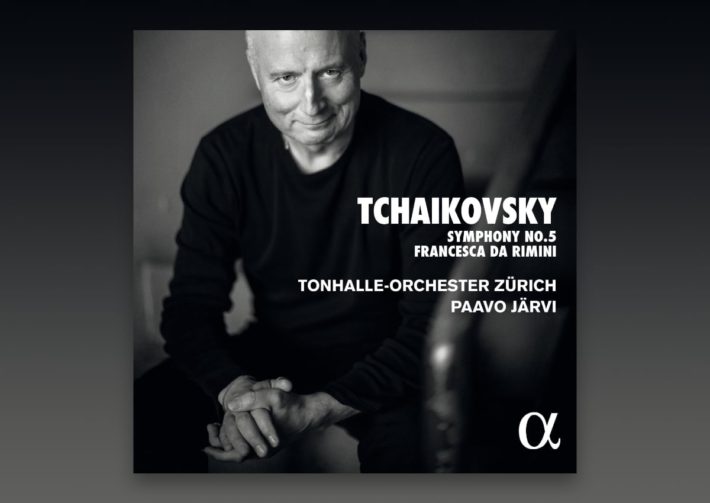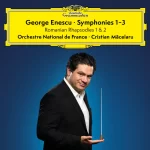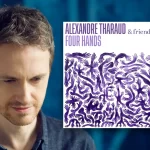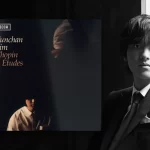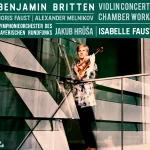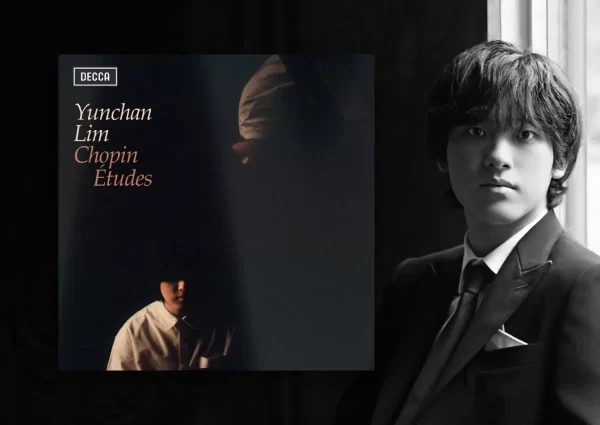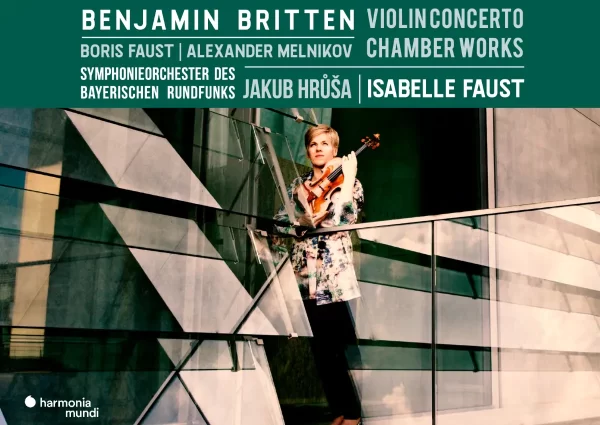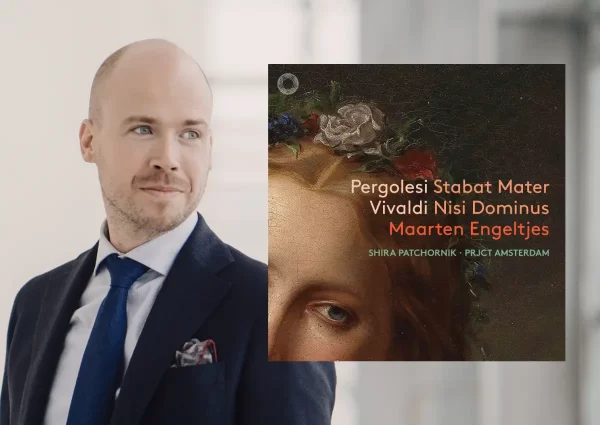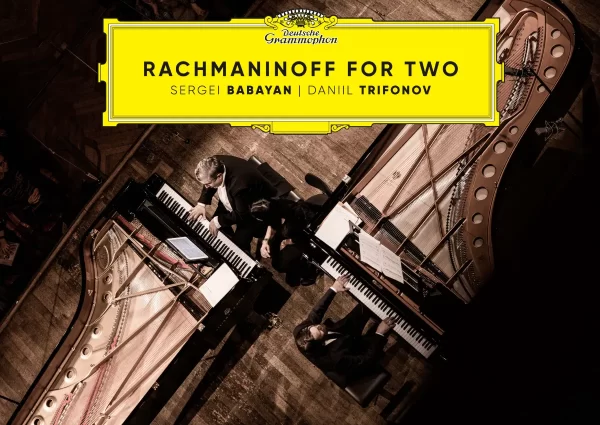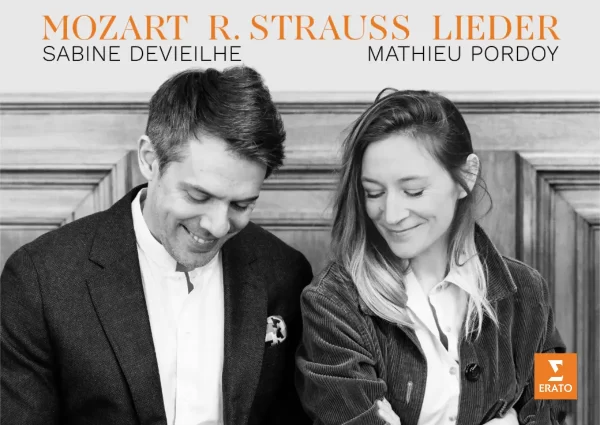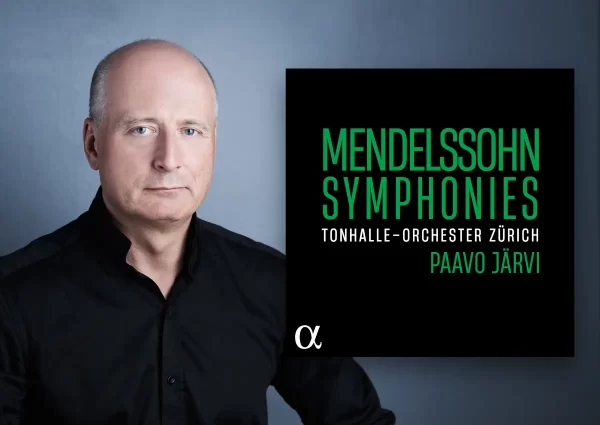This is the first release of a new Tchaikovsky Symphony cycle played by Tonhalle Orchestra Zürich and their new chief conductor, Paavo Järvi. The opening minute is symptomatic of the entire performance: orchestral sound is beautiful, with impressive dynamic gradations, the initial ‘fate motif’ richly colored. Yet the overall atmosphere is equivocal, especially when compared to the deep and foreboding atmosphere the Vienna Philharmonic finds under Gergiev or the restless agitation Petrenko conjures in Liverpool.
The main ‘Allegro’ section has a persuasive lightness that clearly relates this music to Tchaikovsky’s ballets. The Tonhalle plays with unanimity of attack, meticulous ensemble, and sensitive balance between sections. Alpha’s detailed recording reveals a great amount of detail that is often lost (listen to the woodwind runs subtly weave into the orchestral fabric at 3’30”). Yet the first climax lacks weight and fire. And by honoring Tchaikovsky’s ‘Poco meno animato’ 12-measures early (4’49”), Järvi dissipates the music’s emotional potency.
At times the performance seems overly fussy. At 8’26” listen to how carefully the descending string line is articulated, ensuring we clearly hear how it shifts through each section of the strings. Yet this manicured approach weakens Tchaikovsky’s intention to create an increasingly violent downward rush of sound. The Tonhalle builds to a powerful, sonorous climax at 9’10”, but turn to Karajan and Berlin from the 1970s (Warner) or Gergiev and Vienna (8’52”) and this moment becomes far more devastating; the fate motive, blared out by the brass, more emotionally vivid.
The second movement is more successful. The opening passage is gorgeous, Tchaikovsky’s string writing balanced with palpable care, the famous horn solo beautifully played. Järvi, always an exceptional accompanist, allows his players room for individual expression. The playing is emotional, genuine, and deeply felt. Woodwinds are impressive, most especially the flute and bassoon. The strings relish when they have the main melody, playing with fulsome, voluptuous tone.
Related Classical Music Reviews
- Review: Tchaikovsky – Symphony No. 4, Leshnoff – Double concerto – Honeck
- Review: Tchaikovsky – Violin Concerto – Lozakovich, Spivakov
- Review: Rachmaninov – Paganini Rhapsody, Symphony No. 3 – Abduraimov, Gaffigan
But at 7’02” Järvi again makes a tempo change that dissipates the energy created by the climax moments before. More frustratingly, the sudden fortissimo passage at 10’48” is again overly manicured, the trombones reigned in where they should be playing the fate motif at full force. One need only to turn to Gergiev (11’27”) and Petrenko (10’25”) to hear how disruptive and fearsome this passage can sound. Does Järvi perhaps find Tchaikovsky’s heart-on-sleeve emotion over the top?
The third movement is performed with a disarming finesse, though the individual rubato around 1’10” may not be to all tastes. Järvi and his players allow us to really hear every strand of the middle section’s delicate filigree, its playful exchanges between strings and woodwinds elegantly played and recorded.
The final movement’s opening chorale brings a richly burnished orchestral sound, phrases skilfully shaped, played with commitment and passion. The ‘Allegro’ brings a rush of adrenalin, the Tonhalle’s bright and buoyant playing again connecting this writing to the composer’s ballets. Once again, orchestra and conductor uncover a wealth of compositional detail (all but lost in Karajan’s overly harsh, brass saturated recording) and there is a greater ardor in the playing compared to the opening movement. Yet, the final struggle with fate (8’59”) again seems underpowered compared to Petrenko’s performance (8’15”), which more fully expresses the emotional catharsis Tchaikovsky surely intends. Gergiev’s reading of the same moment overwhelms as he drives the Vienna players to the edge of the abyss. Järvi’s final chorale is noble, regal and a touch dispassionate, but the coda, played incredibly fast, is absolutely thrilling.
“Francesca da Rimini” embraces the same interpretative view, with playing of impressive beauty and discipline, the music’s technical challenges are easily dispatched by the Tonhalle. But this is arguably some of the composer’s most emotionally hyperbolic music, and Järvi’s cautious, emotional reticence is problematic. Nelsons’ performance (3 minutes faster than Järvi) with the Birmingham Symphony Orchestra is perhaps less disciplined but far more emotionally engaging. And Stokowski’s 1958 performance with the Stadium Symphony Orchestra of New York is absolutely riveting.
Järvi secures consistently impressive playing from his Tonhalle orchestra, who are at one with their new leader. He has a definite ideal of Tchaikovsky interpretation: it is not simply allowing the music to speak for itself, but it does seem intent on reigning in, or refining, the music’s most intense emotional moments. This ideal may please listeners who find the Karajan, Gergiev and Petrenko performances too histrionic. In my view, those conductors communicate more fully the intense emotions of Tchaikovsky’s music.

Tchaikovsky – Symphony No. 5, Francesca da Rimini
Tonhalle-Orchester Zürich
Paavo Järvi – Conductor
Alpha Classics, CD 659
Included with an Apple Music subscription:
Latest Classical Music Posts
- Review: The Vienna Recital – Yuja Wang, Piano
- Editor’s Choice: The Best New Classical Music Albums, May 2024
- Review: Enescu – Symphonies Nos. 1-3 & 2 Romanian Rhapsodies – Cristian Mǎcelaru
- Review: “Four Hands” – Alexandre Tharaud
- Review: Chopin – Études – Yunchan Lim
- Review: Britten – Violin Concerto, Chamber Works – Isabelle Faust
Read more classical music reviews or visit The Classic Review Amazon store
Follow Us and Comment:
Get our periodic classical music newsletter with our recent reviews, news and beginners guides.
We respect your privacy.

